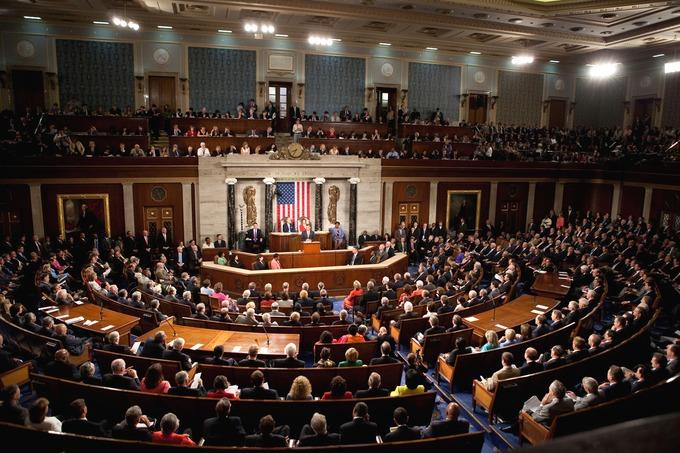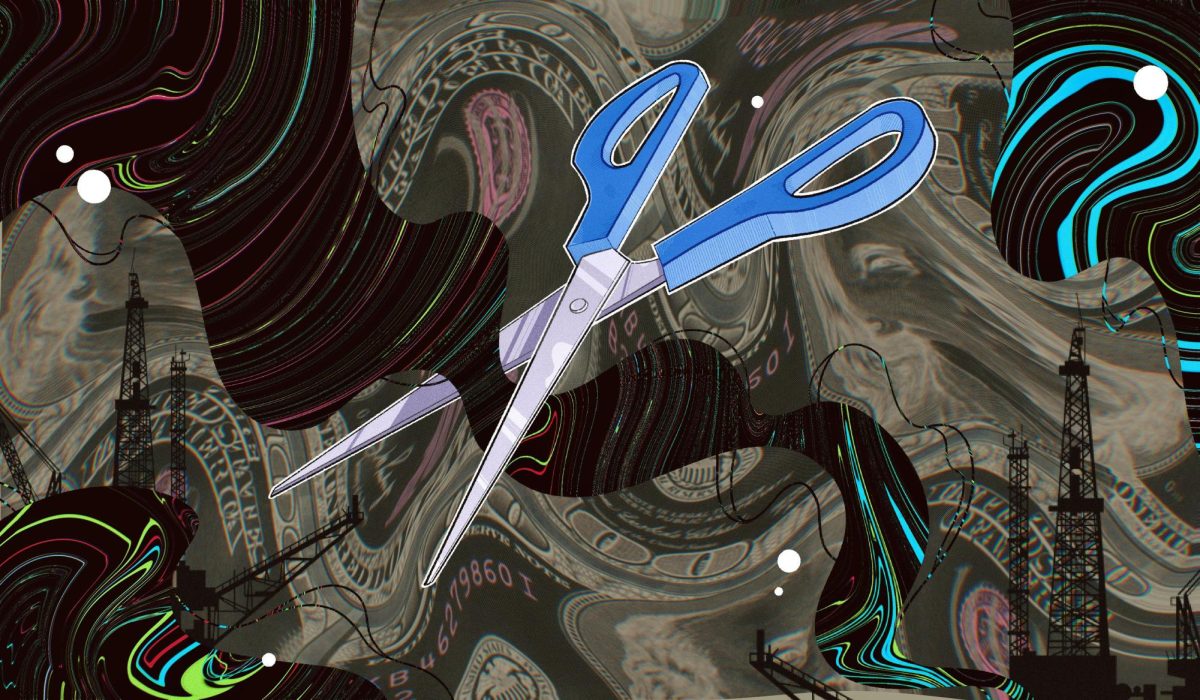After Democrats won a majority in the U.S. House of Representatives last November, soon-to-be Speaker Nancy Pelosi stated that the focus of the House Democrats would be to “strive for bipartisanship. We believe that we have a responsibility to seek common ground where we can, stand our ground where we can’t, but we must try.” This may seem like a good sentiment. After all, in an era where political rhetoric errs on the side of demonizing those with opposing ideologies, finding common ground seems like a healthy change of pace. However, when this effort means conceding to a Republican ideology that is constantly moving further right, seeking bipartisanship will never create unity between the progressive and establishment wings of the Democratic Party. If Democrats are to have any success in this currently divided government, their voters, local party chapters, and the party at large must overcome ideological differences in order to form a unified blue wave.
Progressive House freshmen like Alexandria Ocasio-Cortez and Ayanna Pressley immediately made waves among establishment Democrats when they protested the House member orientation for promoting bipartisanship through the lens of corporate interests. Ocasio-Cortez tweeted, “Our ‘bipartisan’ Congressional orientation is co-hosted by a corporate lobbyist group … Lobbyists are here. Goldman Sachs is here. Where’s labor? Activists? Frontline community leaders?” While bipartisanship has traditionally been partially rooted in mutual support for corporate America by establishment Democrats and Republicans, incoming progressives made it clear that this arrangement would not work for them.
Unfortunately, extending a hand across the aisle is more important to establishment Democrats than closing divides within the Democratic Party. Days after 2019 began, disagreements arose over Pelosi’s push for PAYGO, the rule that new mandatory spending legislation must be funded from a tax increase or a cut in other mandatory spendings, which could jeopardize access to student loans, Medicare, services under the Affordable Care Act, and other social services. Establishment Democrats claim that in order to work with the Republican Senate, PAYGO must be in place to maintain the national deficit. Progressive Democrats conversely argue that PAYGO should not be followed, considering that Republicans stopped following the rule in 2011. This represents a drop in the bucket of active arguments taking place among House Democrats, which also includes the Green New Deal, how to reopen the government, and whether policies like Medicare for All are viable inclusions in the party’s platform.
While the infighting of the Democratic Party is not a new phenomenon, the widespread demonization of Democratic Party notables on the part of voters has become increasingly common. Two weeks into the new year, both Senator Elizabeth Warren and Representative Tulsi Gabbard have announced their 2020 presidential campaigns. Immediately following these announcements came harsh attacks of character. Warren found herself being attacked from the center for being too liberal and from the left for being a traitor to Bernie Sanders in the 2016 election. Gabbard, on the other hand, has been viciously criticized by the establishment for her foreign policy stances and her previously anti-LGBT views from the early 2000s, even though these same establishment critics never offered the same critique of 2016 candidates like Hillary Clinton for having historically held the same views. While it is important to vet candidates on a policy basis, inconsistently touting decades-old viewpoints that do not apply in the current day does nothing more than further divide the party. No one should be immune to criticism, but all critiques should be rooted in fact rather than character assassination.
Local chapters of the Democratic Party across the nation would be apt to serve as intermediaries to these debates, allowing platforms for both politicians and voters to connect in order to work out any discrepancies. For the San Diego County Democratic Party, however, pushing for cohesion does not appear to be a priority. On its Facebook page, the organization comes across as only interested in either rallying voters behind a mutual hatred of President Donald Trump or hosting blanket “Get Out the Vote” events without actually facilitating an opportunity to hold the national Democratic Party and its representatives to a standard of overcoming disagreements. Rather than attempting to appease both sides, local groups like the SDCDP should offer better opportunities for voters to voice their concerns and learn the facts on bills, issues, and candidates.
Both Democratic Party leadership and voters have a long way to go before unity can be expected. Considering that the Republican-held Senate and Trump presidency remain obstacles for any legislation promoting the ideals that members of the Democratic House ran on, it is important for constituents across the country to be engaged with party infighting while abstaining from demonizing party members. This engagement comes in the form of calling their representatives to voice their opinions on upcoming House votes, fully educating themselves on bills and candidates, and gearing up for Election Day 2020. Only through these acts of civic engagement will constituents ensure that the promises they voted for become realized in the efforts put forth by the Democratic Party.








